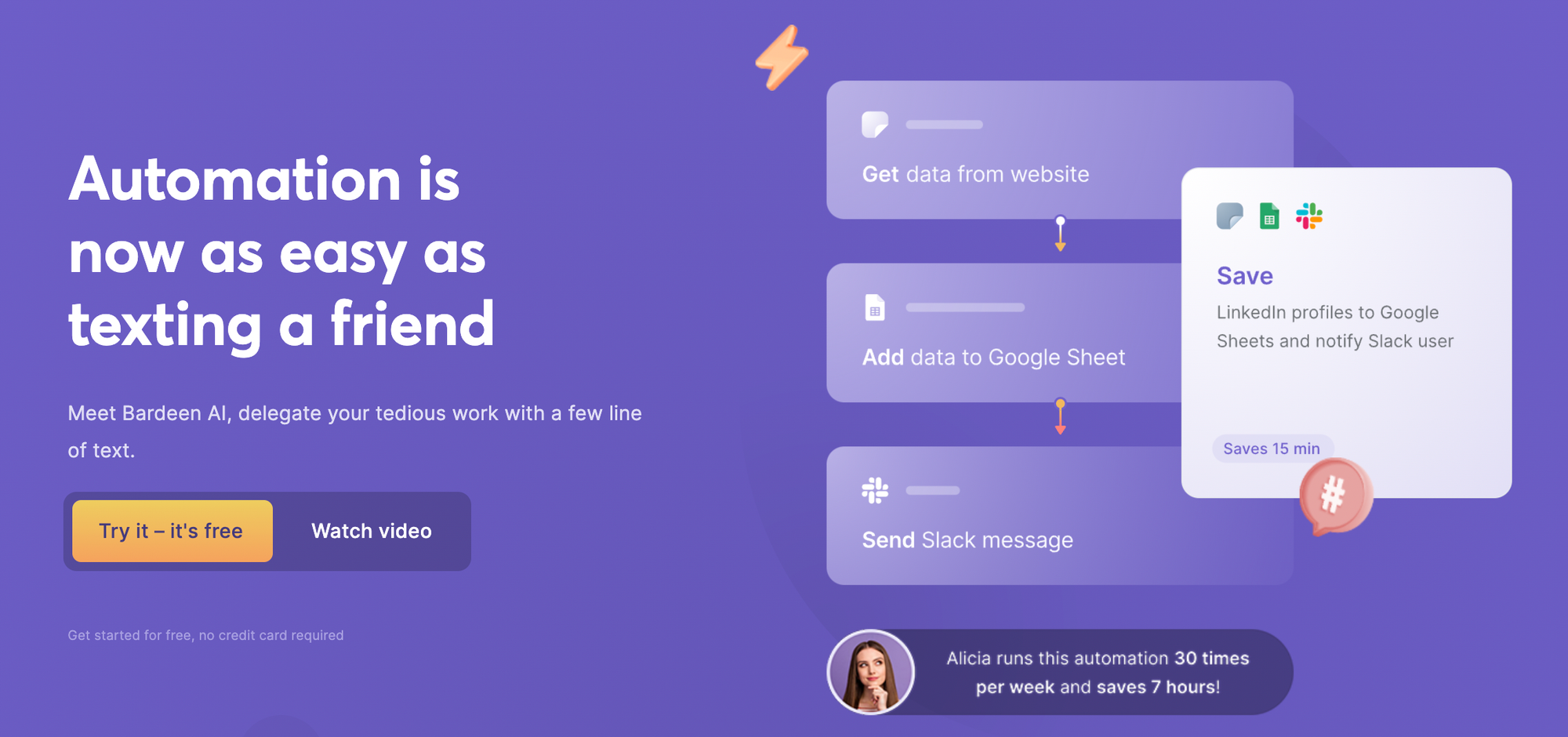Cloud Integration: When and How
As noted by research firm Gartner, the software-as-a-service (SaaS) solutions market is on track to reach more than $122 billion in 2021, fueled in large part by the demand for agile and flexible applications that let teams work anywhere, anytime.
The more applications your business uses everyday, the more complicated your IT environment becomes. As a result, it’s often worth deploying cloud integration platforms as soon as possible — companies can get familiar with key features and functions before application volumes begin to scale up exponentially.
Integration itself can be handled in-house by deploying infrastructure and services that support cloud connections, but this approach is time-consuming and costly, even for large enterprises. Cloud integration platforms, meanwhile, are designed to streamline this connective process and reduce the amount of lead time required for deployment.
Benefits of Cloud Integration
Deploying cloud integration platforms provides several benefits for businesses, including:
Improved Collaboration
Silos are problematic for small businesses — if marketing teams are using one set of applications and data, while product development, production and HR teams are using another, the results can range from mismatched business objectives that limit ROI to duplicated work that reduces total efficiency.
Cloud integration platforms offer a way to connect disparate applications and departments, making it possible for teams to leverage and collaborate on the same data in real-time.
Increased Visibility
Companies also benefit from increased visibility when using cloud integration platforms. By unifying application environments under a single solution, IT teams can easily see what’s happening, when, and why. As a result, companies are better prepared to deal with application conflicts or team requirements as they arise, rather than after the fact.
Enhanced Cost Control
Cloud applications left unchecked and unmonitored come with significant costs over time, especially if they’re continually collecting or using data. Cloud integration makes it possible for businesses to see what’s running on their network and evaluate how often applications are used, allowing them to better manage and monitor overall technology costs.
Potential Pitfalls of Cloud Integration
Generally speaking, cloud integration platforms streamline the deployment, use, and monitoring of cloud-based applications. The evolution of this market vertical means that substantive challenges are few and far between, but there is a potential pitfall that businesses must address: Choosing the right platform.
With a host of options now available and each offering a different mix of features and functions, it’s easy to get bogged down in the details. The result? Businesses may end up selecting a platform that performs adequately rather than exceptionally given their specific mix of applications, services, and staff needs.
Need some help finding your best fit? Let’s break down the top cloud integration platforms, as rated by trusted review site G2.
1. JitterBit
G2 Rating: 4.7/5.0 (228 Reviews)
 As one of the leaders in the iPaaS space, JitterBit lets you fuse thousands of SaaS, cloud, and on-premises applications into one interface. You can also leverage their pre-built templates and workflows to automate your business processes. Additionally, you can create new application programming interfaces (APIs) from your existing enterprise applications or data on their API platform. You can even blend your newly created APIs with external APIs to roll out new business solutions.
As one of the leaders in the iPaaS space, JitterBit lets you fuse thousands of SaaS, cloud, and on-premises applications into one interface. You can also leverage their pre-built templates and workflows to automate your business processes. Additionally, you can create new application programming interfaces (APIs) from your existing enterprise applications or data on their API platform. You can even blend your newly created APIs with external APIs to roll out new business solutions.
What we like:
Jitterbit is all about making it easy for companies to connect applications and APIs in days rather than weeks. The solution is used by thousands of companies worldwide and includes powerful app and API integration tools that empower businesses to not only streamline key processes but collect intelligence data on-demand.
2. Operations Hub
G2 Rating: 4.6/5.0 (297 Reviews)

Operations Hub leverages intelligent 2-way sync technology from PieSync to update any customer’s information in one app after it changes in the other. The cloud integration platform also gives you complete control over the apps you choose to sync, consolidates customer information from multiple apps, and stores and updates all your data in one place so you can access it and make the most accurate data-driven decisions for your business.
What We Like
Sure, we’re a bit biased, but the fact remains that Operations Hub is one of the best-reviewed cloud integration solutions on G2. With a host of tools including data sync, data quality automation, and the ability to slice and dice data on-demand, Operations Hub has everything you need to run — and grow — your business.
3. Zapier
G2 Rating: 4.5/5.0 (729 Reviews)
 With the ability to connect to and share data with over 1,000 web apps, like Facebook, QuickBooks, and Google Drive, Zapier can automate almost any type of business process. All you have to do is build a workflow in their editor, pick the apps you want to include in your workflow, and watch your apps work together without additional intervention.
With the ability to connect to and share data with over 1,000 web apps, like Facebook, QuickBooks, and Google Drive, Zapier can automate almost any type of business process. All you have to do is build a workflow in their editor, pick the apps you want to include in your workflow, and watch your apps work together without additional intervention.
What We Like
Zapier is based on three key principles: Integrate, automate and innovate. Integration links web apps in just a few clicks, automation passes data between applications using workflows called “Zaps,” and innovation lets you build better processes with no code required. All told? It’s a win-win-win.
4. Bardeen.ai
G2 Rating: 4.9/5.0 (27 Reviews)

As an AI innovator in the iPaaS space, Bardeen allows you to easily connect hundreds of SaaS and websites using just a few lines of text, without the need for any code. With Bardeen.ai, automation is now as simple as texting a friend. Bardeen helps streamline your workflow with AI, whether you need to keep your CRM clean and updated, personalize outreach campaigns, or synchronize data across various tools your internal team uses.
Bardeen allows users to automate their workflow with just a few lines of text. Getting started is easy with thousands of ready-to-use automation templates to choose from. Connect your workflow and apps using Bardeen.ai's integrations.
What We Like
Bardeen.ai focuses on leveraging cutting-edge AI technology to enable companies to easily connect applications and websites in seconds, instead of weeks. Simply input your request, and the platform will automatically create your integrations. Review and activation can be done with just a few clicks.
5. DCKAP Integrator
G2 Rating: 4.7/5 (44 Reviews)
The DCKAP Integrator is delivered on the cloud and specializes in integrating applications preferred by distributors. It acts as a single source of truth for multiple tools, allowing for secure and error-free data flow. The platform offers an easy to use, low-code means of hybrid integration for its niche, capable of syncing cloud and on-premise applications.
What We Like
DCKAP Integrator puts efficiency at the forefront. By dedicating itself to a niche it offers customizations, connectors, and pricing tailored to distributors and the technology they use. With over 100 users, the tool is robust yet cost-effective, and promises to help level the playing field for companies taking on industry giants.
6. MuleSoft Anypoint Platform
G2 Rating: 4.5/5.0 (495 Reviews)
 Trusted by over 1,600 enterprise companies, MuleSoft Anypoint Platform lets you manage all your APIs and integrations on one platform. You can also build and integrate your APIs; integrate with any application, data, or device; deploy on-premises integrations to the cloud without rewriting any code; and protect your data and administer access to employees by leveraging edge gateways and encryption.
Trusted by over 1,600 enterprise companies, MuleSoft Anypoint Platform lets you manage all your APIs and integrations on one platform. You can also build and integrate your APIs; integrate with any application, data, or device; deploy on-premises integrations to the cloud without rewriting any code; and protect your data and administer access to employees by leveraging edge gateways and encryption.
What We Like
Mulesoft is all about speed and simplicity. Reusable API assets make it easy to create app integrations with just a few clicks, and machine-learning recommendations help automatically transform data. Plus, businesses get real-time visibility into APIs and integrations from a single interface.
7. IBM App Connect
G2 Rating: 4.3/5.0 (207 Reviews)
 With IBM App Connect, you can integrate your data between on-premises and cloud-based applications, build APIs on an intuitive, code-free interface, and build workflows that automate your business processes within different apps. You can also deploy IBM App Connect in any cloud or on-premises environment.
With IBM App Connect, you can integrate your data between on-premises and cloud-based applications, build APIs on an intuitive, code-free interface, and build workflows that automate your business processes within different apps. You can also deploy IBM App Connect in any cloud or on-premises environment.
What We Like
Part of the appeal here is that IBM has long been a leader in the technology integrations and operations space, but it’s the specifics of the solution that really set it apart. Using prebuilt app connectors and agile integration architecture (AIA), organizations can easily connect all apps across all environments for maximum operational flexibility.
8. Dell Boomi
G2 Rating: 4.2/5.0 (222 Reviews)
 Trusted by over 8,000 brands, Dell Boomi lets you fuse all your digital platforms into one. By uniting all your data, applications, and processes, Boomi essentially stores all of your technology systems and assets in one place. With Boomi, you can also manage your APIs, maintain the quality of your data, build workflows with minimal coding knowledge, and develop applications.
Trusted by over 8,000 brands, Dell Boomi lets you fuse all your digital platforms into one. By uniting all your data, applications, and processes, Boomi essentially stores all of your technology systems and assets in one place. With Boomi, you can also manage your APIs, maintain the quality of your data, build workflows with minimal coding knowledge, and develop applications.
What We Like
With more than 15,000 customers worldwide, Boomi remains one of the top cloud integration platforms. The Dell solution focuses on three key areas: Data, systems, and people. It promises instant integration of all three to help accelerate and simplify cloud-based operations.
Making the Most of Cloud Integration
Cloud integration platforms can help streamline and simplify application management across your small business. More importantly, they can help break down operational silos by providing a way for teams to collaborate and connect regardless of how, when, or where they use company data. This will empower your team to deliver actionable insights and make the most of cloud-based applications at scale.
Editor's note: This post was originally published in May 2019 and has been updated for comprehensiveness.
iPaas



![How I Write SOPs to Streamline My Workflow [+ Free Template]](https://53.fs1.hubspotusercontent-na1.net/hubfs/53/standard-operating-procedure-1-20241226-9205941.webp)


